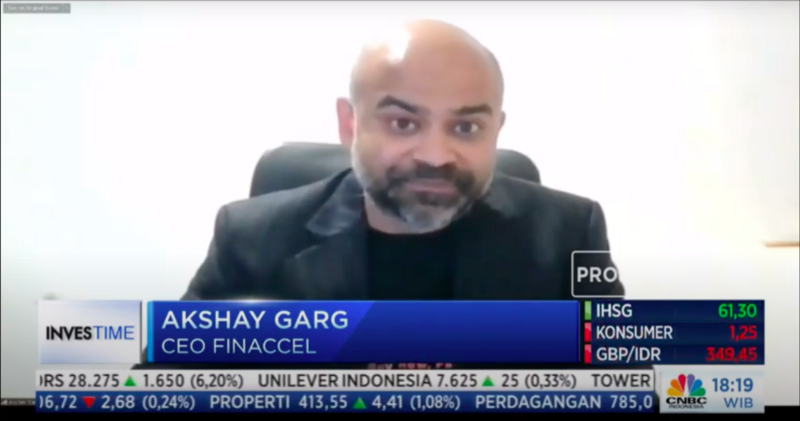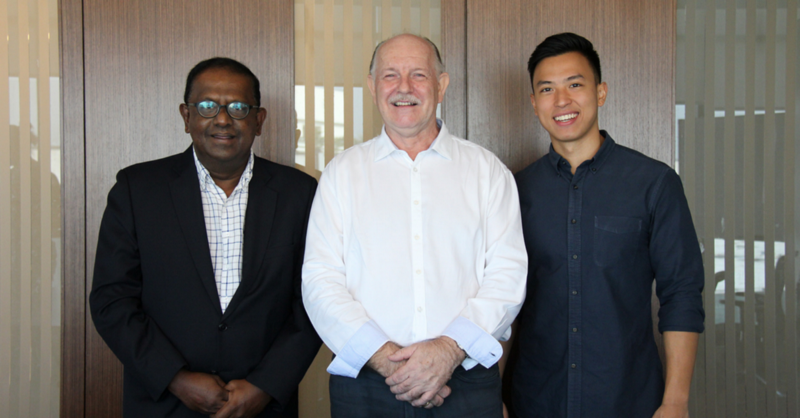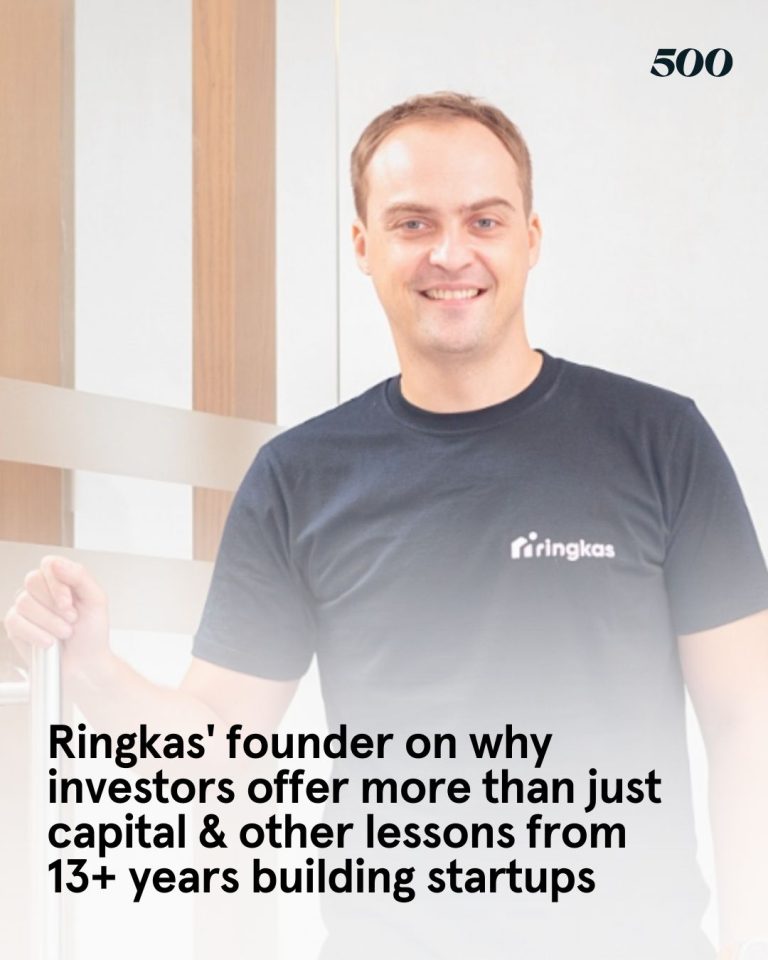Giving credit where it’s due
- Akshay Garg, co-founder and group CEO of FinAccel, which operates 500-backed Indonesian fintech platform Kredivo, its flagship “buy now, pay later” solution, appeared on CNBC Indonesia’s ‘Investime’ segment to talk about the trend of ‘pay later’ services in the country.

- From being a new payment method 5 to 7 years ago, Akshay shared that ‘pay later’ services today account for 10–20% of all e-commerce transactions. “This is a big deal as payment methods take a long time to get to that scale,” he said, adding that it is the fastest-growing payment method in Indonesia.
- According to Akshay, 2.5–3% of all e-commerce transaction value today is attributed to the ‘pay later’ method and he expects it to grow to a 10–20% share over the next 5 years.
- On the challenges of the development of the ‘pay later’ industry in Indonesia, Akshay shared that the coverage and quality of the country’s credit bureau is not as high compared to the West, where customers can be approved instantly. In addition to building a financial platform, companies like FinAccel are also building deep data aggregation and credit scoring platforms.
- As such, approval ratings are not as high in comparison to other countries, but he added that they are getting better as the startup gets access to more data and as its credit scoring capabilities improve over time.
- How has Covid-19 impacted the company’s growth in the ‘pay later’ space? He shared Kredivo has grown 300% per year over the last 2–3 years, and while they are not seeing that kind of growth this year, the e-commerce industry is expected to grow 40–50% because of Covid-19 and because of that, the startup expects to see a growth rate of at least 2x that of e-commerce. “We believe as things normalize next year, e-commerce will keep on growing healthily and the ‘pay later’ space will be the fastest-growing among all payment methods in the e-commerce industry,” he said.
- “In general, credit is a great enabler of sales,” Akshay added. “Based on studies we have done, if you are buying on credit, on average, a customer is spending 30–100% more than they are on other payment methods. This is consistent on both credit cards and ‘pay later’ methods.”
- Watch the full interview here.
Making business better
- 500-backed fintech startup Curlec reviewed its performance and progress in 2020 in a piece on its website.
- Targeting small and medium enterprises (SMEs) that traditionally face difficulty in setting up automatic direct debit payments, co-founder Zac Liew said this segment is underserved in Malaysia. Curlec’s solution turns mandatory paperwork into a fully online process with a 100% approval rating instead of the usual 70%.

- According to the startup, key milestones include:
- Securing funding from 500 Startups to grow and accelerate operations in Malaysia
- Processed over US$100 million in transactions since launching in 2018
- Joined forces with hundreds of partners in 2020, recording a 600% growth in recurring payment volumes year-on-year
- It was recognized with a few awards this year, one of which was Best FinTech Startup Finalist at the TechNode Global’s ORIGIN Innovation Startup Awards 2020.
- The startup launched the Future Leaders Program, a training program for graduates focused on practical learning experiences that gives insights into the full breadth of its business.
- Curlec also launched several software updates, through which SMEs have access to more payment offerings and improved data security, to name a few.
- Read the full article here.
The road to entrepreneurship
- Val Yap, founder and CEO of 500-backed insurtech platform PolicyPal penned an opinion piece titled ‘How much would you sacrifice to start your own startup?’
- Based in Singapore, PolicyPal is a licensed digital insurance broker and financial advisor that was founded in 2016.

- From changing daily routines to accommodate work to investing personal savings, Val believes that sacrifices — big or small — are necessary for startup founders.
- This is exactly what she did. “To win, you have to swim upstream early on–and that requires hard work and long hours. There are no shortcuts,” she added.
- She shared as a solo female founder with no track record, she was rejected by hundreds of investors, so she had to work even harder to get to where she is today. She had no sick days or vacations and did not take a salary until doing so was approved by her investors.
- She also rejects the saying “work smart, not work hard” and believes that both are important.
- She cited research in Singapore showing that entrepreneurship is ranked second in career paths by graduates. Her advice? “Do not underestimate what is involved…There is no short cut of “financial freedom” nor “working your own hours”.”
- “If you are sitting here today, in 2021, thinking about doing something big with your life, what are you going to sacrifice to make it happen?” she asked in conclusion.
- Read the full piece here.
Missed out the last Daily Markup? Go here to check it out.
You can also find us on LinkedIn, Facebook, Twitter, and Instagram.

500 Startups is a venture capital firm on a mission to discover and back the world’s most talented entrepreneurs, help them create successful companies at scale, and build thriving global ecosystems. In Southeast Asia, 500 Startups invests through the pioneering 500 Southeast Asia family of funds. The 500 Southeast Asia funds have backed over 240 companies across multiple sectors from internet to consumer to deep technology. It continues to connect founders with capital, expertise and powerful regional and global networks to help them succeed.
This post is intended solely for general informational or educational purposes only. 500 Startups Management Company, L.L.C. and its affiliates (collectively “500 Startups”) makes no representation as to the accuracy or information in this post and while reasonable steps have been taken to ensure that the information herein is accurate and up-to-date, no liability can be accepted for any error or omissions. All third party links in this post have not been independently verified by 500 Startups and the inclusion of such links should not be interpreted as an endorsement or confirmation of the content within. Information about portfolio companies’ markets, competitors, performance, and fundraising has been provided by those companies’ founders and has not been independently verified. Under no circumstances should any content in this post be construed as investment, legal, tax or accounting advice by 500 Startups, or an offer to provide any investment advisory service with regard to securities by 500 Startups. No content or information in this post should be construed as an offer to sell or solicitation of interest to purchase any securities advised by 500 Startups. Prospective investors considering an investment into any 500 Startups fund should not consider or construe this content as fund marketing material. The views expressed herein are as at the date of this post and are subject to change without notice. One or more 500 Startups fund may have a financial interest in one or more of the companies discussed.




